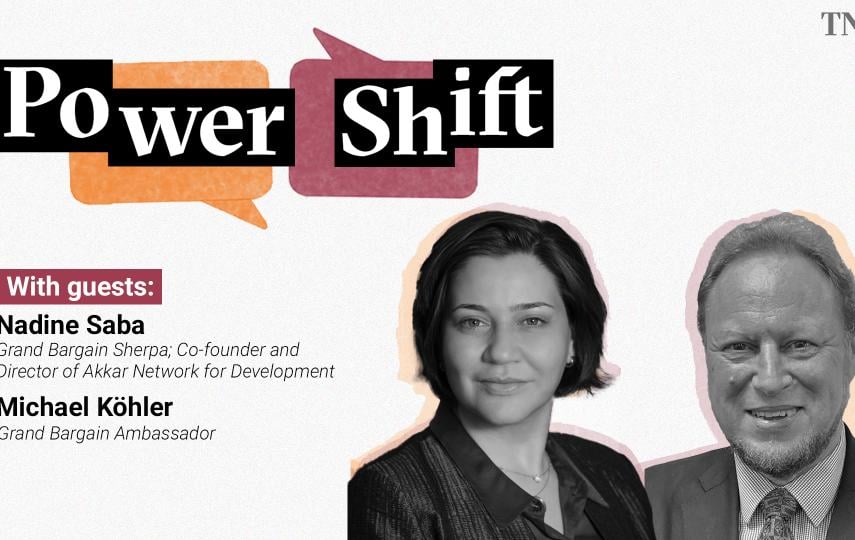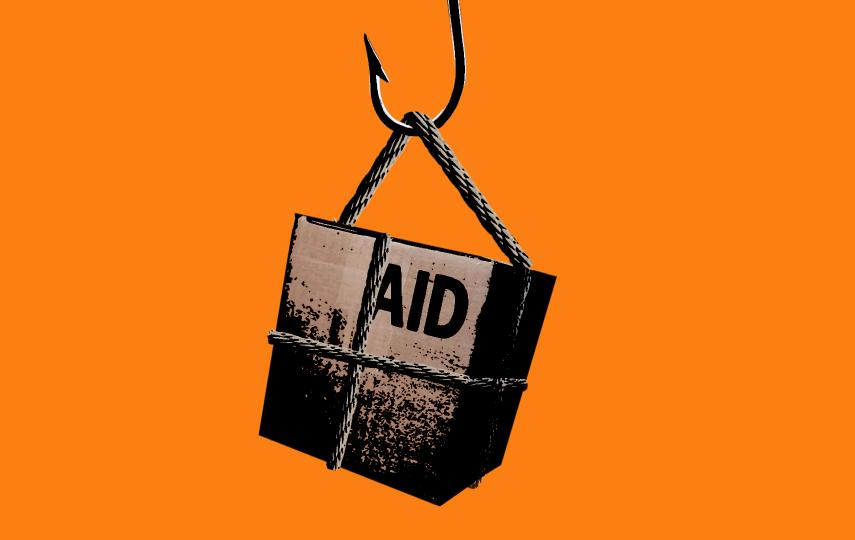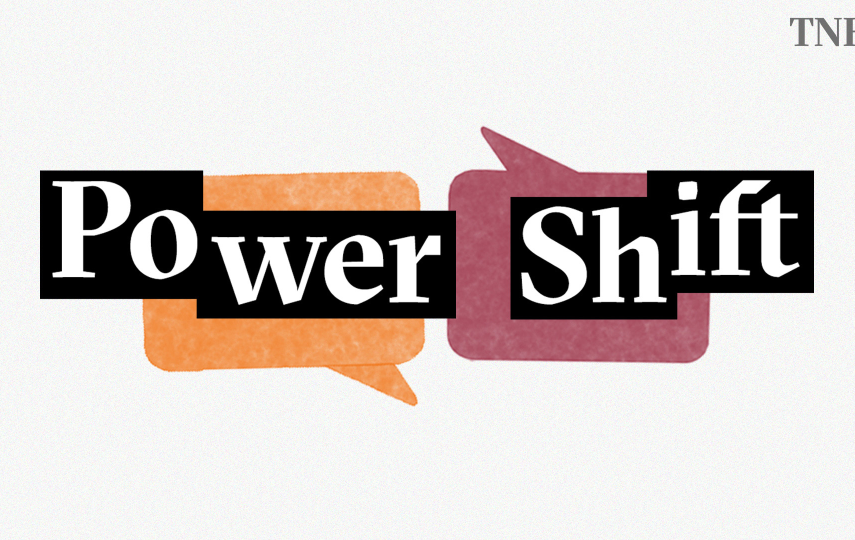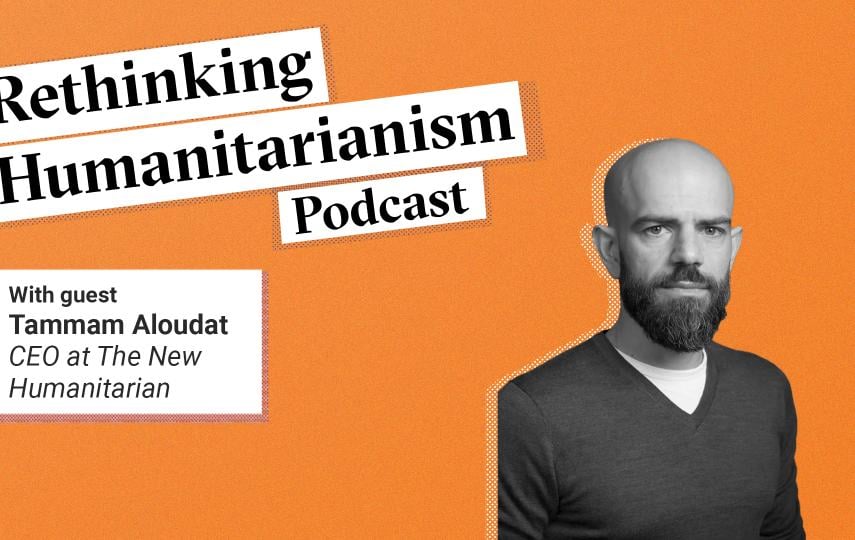The protests for justice and equity that erupted in the aftermath of George Floyd’s murder sparked a global conversation about the pervasiveness of racism in our lives, and in our workplaces.
In the humanitarian aid sector, the protests reanimated historic conversations around decolonisation. People with lived experience of conflict, disaster, and oppression issued calls to eradicate discrimination based on gender, class, caste, disability, and sexual orientation, and to shift power and resources to local communities.
Predictably, the conversation soon stalled, with pushback and backsliding from policymakers and resource holders before any real progress on justice and equity was made. Those calling for action grew frustrated with the endless cycle of panels and presentations, which recycled the same discussions repeatedly and further entrenched power imbalances. Without meaningful change, talking becomes useless window dressing, only helping to line some people’s pockets or give them higher profiles, or to allow institutions to pretend they’ve engaged simply by showing up.
To respond to this frustration, I partnered with The New Humanitarian in 2022 to bring people advocating for action together with decision-makers in a closed-door session that aimed to channel the dialogue into tangible progress. We invited advocates and local aid workers to be raw, honest, and direct.
They didn’t disappoint. They mapped out the landscape of power imbalances and their practical pathways and processes toward equity. This was the first time some of the attending decision-makers had listened first-hand to the anger, the reality, and the expertise these local advocates were holding.
This gave us an idea. What if we built on the group dialogue to facilitate face-to-face conversations designed to move from talk to action? How might entrenched power dynamics shift if people engaged in deep, direct, moderated dialogue? And what if you could listen in on those conversations?
Bridging the gap between those facing crises and those with the resources to respond requires a fundamental shift in how we engage and build relationships with each other.
This is why we launched Power Shift, a podcast that pairs two people from different parts of the power spectrum in humanitarian aid – a decision-maker paired with someone whose work and life is affected by those decisions. We designed the dialogue to draw out their lived realities and foster a shared understanding of the potential for creating equitable and just processes in humanitarian aid.
Bridging the gap between those facing crises and those with the resources to respond requires a fundamental shift in how we engage and build relationships with each other.
This will take more than conversations on panels – though knowledge sharing is important – and this shift won’t come from a disengaged focus on efficiency and solutions. We need to reframe relationships for equity, justice, and a more balanced distribution of power, which has long been concentrated away from affected communities. We need resource-holders to recognise that people enduring crises are not just statistics on a spreadsheet, but individuals fighting interconnected struggles rooted in economic, political, and regional issues. Leadership that centres on and emerges from those most affected by crises, combined with active listening – taking the time to truly understand other perspectives – enables those closest to the issues and furthest from resources to influence the decisions that impact their lives.
At the same time, we have to understand what constrains decision-makers. Is it government policies or donor intent? Is it willful blindness, or a threat model that makes them act from fear, or distrust that power shouldn’t be shared?
Listening, along with supporting the intellectual capital and narrative power of local communities, is essential for transforming relationships and fostering spaces where people engage as equals. And in a world overwhelmed by noise, dialogue offers a chance to slow down, listen deeply, engage with intention, and map pathways to shared power and community. This is the theory that underpins Power Shift’s design. We have started the project with two pairings – Nadine Saba with Michael Köhler, and Hafsar Tameesuddin with Raouf Mazou – each of whom brought their full selves and their full attention to their conversations. They dove in with courage and honesty, and with humour and kindness.
I serve as moderator as well as co-producer on the podcast. Creating this space has deepened my appreciation for the power of generative dialogue. I’ve learned when to step in or step back. I’ve learned that – counterintuitively for an audio format – holding space for silence to unfold can lead to breakthroughs in understanding and connection. And the relationship I’ve developed with podcast producer Melissa Fundira has been especially meaningful. Through our own dialogue, we contextualise the politics of humanitarian aid, drawing on the conversations and our own experience. We’ve been able to explore our own positions within the power dynamics of the sector and, as designers of these conversations, reflect on the complexities of all sides – including those in positions of power. As a woman of colour from the West, I navigate a sense of disempowerment related to both gender and race, but also the privilege of location and opportunity. I grapple with my responsibility in these dynamics, as well as my role in reshaping them. As the designer of these conversations, I’ve come to recognise the power in setting the stage.
We don’t believe dialogue alone will catalyse this transformation. But it is one essential piece of the puzzle.
I take this responsibility seriously – especially now, at a time of heightened uncertainty, collapse, and atrocity. At the time we began this project last year, the humanitarian sector was already under immense pressure, as Gaza and Sudan had started to shatter the existing international humanitarian law order. Now, the US decision to upend foreign aid has further kneecapped the international humanitarian system. USAID has been paternalistic and problematic in much of its presence in the sector. But whether you believe the sector is better off without it, or that we should simply tear down the sector completely, these events have shaken the very foundations of foreign aid and humanitarian aid. People are dying as a result of this decision.
This is an existential threat that is actively harming people. At the same time, it presents an opportunity to reimagine how we address humanitarian crises driven by conflict, climate change, displacement, and inequality. We can’t solely rely on past methods. To address urgent, unmet needs, to protect those most at risk, and to transform our systems towards just futures, we urgently need innovation that is grounded in lived experience. This means building new, power-sharing relationships and communities, where we work with people and fully understand the human stories behind the data. We have to create new ways to engage with one another, and new forms of dialogue and exchange.
We are not fooling ourselves. We don’t believe dialogue alone will catalyse this transformation. But it is one essential piece of the puzzle. Our goal is to set the stage for innovation and transformation through open, honest engagement. By meeting as equals, Power Shift participants are transcending institutional boundaries to build a shared understanding of how power can flow toward the common good.
Humanitarians have the dual tasks of responding to the needs of people in crisis and reimagining the sector itself. We hope our participants, and you, the listener, will find inspiration for how to make that transformation happen.





